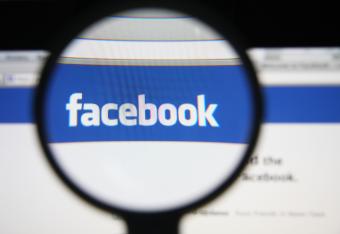
Anyone who is interested in Web 2.0 has probably noticed the ongoing development of new, social media terminology. Many of these terms are used for both social media and social networking.
Social Media vs. Social Networking
It's interesting to note that although people use social networking and social media interchangeably, they are not exactly the same. Social networking does share some of the common social media terminology. However, there is a slight difference between these two forms of online communication.
Simply put, social networking is an outlet to make online connections with other people, whereas social media provides a venue for broadcasting information. LinkedIn is an example of a social networking site, whereas YouTube and Flickr are social media sites. The issue becomes more complex when you consider the fact that sites such as Flickr and YouTube have comment pages, groups and forums, which means that they are incorporating social networking. Meanwhile, social networking sites such as MySpace and FaceBook often use video, music and photos, so they are making use of social media. For more information on these distinctions, read this excellent article on the difference between social media and social networking.
Social Media Terminology Glossaries Online
You can find a number of Web 2.0 terminology glossaries online. Most contain terms that are used for both social media and social networking. Here are just a few of them.
- Ultimate Glossary: This is one of the largest lists of social media and social networking terms.
- 25 Social Media Buzzwords: Although this site has fewer terms than some of the others, it goes into much greater detail.
Most Common Social Media Terms
While there are many terms and phrases used in the world of Web 2.0, these are the most popular:
- Aggregator: A web-based tool that collects and delivers syndicated content.
- Archives: An organized index page that collects a website's posts from the past.
- Captcha: A series of letters that are used when someone tries to respond to a social media post. The writer must correctly type the letters before posting. The captcha was created to assure that a person, as opposed to a software program, is writing the response.
- Creative Commons License: A creative commons license allows you to keep the copyright of your work, but allows others to distribute your work on other social media or social networking websites. The photography website known as Flickr has a series of free photos that are available for use on other websites. Keep in mind that you still have to credit the photographer, and you cannot claim it as your own work.
- Dynamic Content: Dynamic content is content that is constantly changing. Videos and animations are examples of dynamic content.
- Keywords: Keywords are the descriptive words that describe a piece of media. A good use of keywords makes it easier for a website, article or video to be found on search engines.
- Photoblog: A type of blog that allows users to share photos.
- Podcast: A podcast is an audio program in a compressed digital format, which is designed to be listened to over the web.
- RSS: RSS is an acronym for Really Simple Syndication. This XML based format has become the preferred standard for syndicating content across the web.
In the next few years, as social networking and social media become even more popular, there will probably be many more new terms added to the language of social media. It will be interesting to see what develops.







